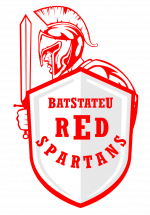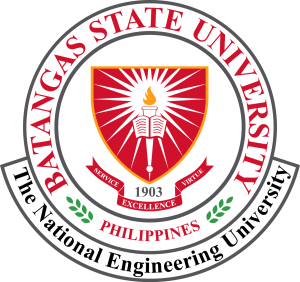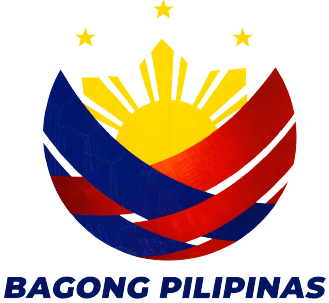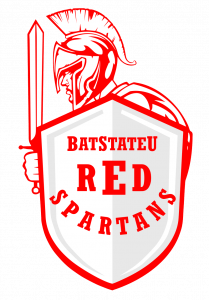







College of Arts and Sciences
University Vision
A premier national university that develops leaders in the global knowledge economy.
University Mission
A university committed to producing leaders by providing a 21st century learning environment through innovations in education, multidisciplinary research, and community and industry partnerships in order to nurture the spirit of nationhood, propel the national economy, and engage the world for sustainable development
University Core Values
Patriotism
This value extends from promoting love of country to taking pride in being a Filipino. The University advocates a strong sense of commitment to national ideals through its active promotion of the Philippine culture and heritage, as well as concern for the environment and the nations, all of which lead to the creation of a pool of professionals who are instrumental for nation building.
Integrity
This pertains to the University’s steadfast adherence to morally-sound principles and ideals in the pursuit of institutional goals and objectives. It covers the values of accountability, honesty, righteousness, incorruptibility, and decency in the governance and implementation of academic, administrative, financial policies.
Excellence
This represents the drive of the University to pursue greatness. It includes the cultivation of a culture of excellence in the hearts and minds of the stakeholders, and the continuous improvement in the systems by which the University operates on. This value pushes the institution to go beyond the standard levels of performance, and be in a position of leadership that would inspire the people and other institutions to serve the country to the highest degree.
Service
This refers to the genuine desire of the University to respond to the growing needs of the community. It encompasses the selfless performance of the University’s mandates, and its duty to constantly meet the challenges of development in the country in the spirit of uplifting the lives of the Filipino people.
Resilience
This refers to the ability to conquer the different challenges, hardships and tests of time. This value encompasses the commitment of the University to support the government in pursuing sustainable development, and foster disaster risk reduction and management by dedicating its efforts towards strengthening readiness and capacity of the community and its people.
Faith
The University’s initiatives and activities are guided by a strong faith in a Supreme Being. These are anchored on high regard and respect for the beliefs and orientation of each member of the academic community for a productive and meaningful co-existence.
The College of Arts and Sciences offers two (2) programs: Bachelor of Science in Psychology and Bachelor of Arts in Communication.
The college comprises seven (7) permanent faculty members and twenty-nine (29) guest lecturers.
The College of Arts and Sciences aims to provide leadership in quality instruction, extension services, and professional training in the Arts and Sciences. It seeks to produce scientifically trained, economically stable, and environmentally conscious citizens. Moreover, it is anchored on the philosophy of providing students with a humanistic education designed to enhance their commitment to personal growth and social transformation, molding them into professionals who possess love and faith in Almighty God, their country, and their fellowmen.
Service refers to the university's genuine desire to respond to the growing needs of the community. It encompasses the selfless fulfillment of the university's mandates and its duty to continuously meet the challenges of national development in the spirit of uplifting the lives of the Filipino people.
CAS Goals
The College of Arts and Sciences aims to provide leadership in quality instruction, extension services, and professional training in Arts and Sciences. It also aims to produce scientifically trained, economically stable, and environmentally conscious citizens. Moreover, it is also anchored on the philosophy of providing students with a humanistic education geared to enhance their commitment to personal growth and social transformation, thus making them professionals possessing love and faith in Almighty God, their country, and their fellowmen.
| PEO 1 | Specialist. | |
| Practiced as a specialist in developing and managing internal and external communication strategies and in promoting positive public image as an
organization/institution/company representative. |
||
| KPI 1 | Graduates are involved in conceptualizing communication materials
designed for specific audiences. |
|
| KPI 2 | Graduates are able to practice the role of media with heavy regard on
communication media laws and ethics. |
|
| KPI 3 | Graduates are active participants in developing and engaging in
communication -driven business ventures. |
|
| KPI 4 | Graduates are able to provide the communication needs of social
development projects |
|
| PEO 2 | Professionalism and Leadership | |
| Assumed leadership position in industry, academe, government, or private sector
with consideration to social and ethical responsibility. |
||
| KPI 1 | Graduates observe communication media laws and exhibit clear understanding of the role of media in a democratic society. | |
| KPI 2 | Graduates have skillfully used participatory strategies in planning, implementing and evaluating communication programs. | |
| KPI 3 | Graduates have skillfully used communication strategies in mediation, negotiation and resolution in development work | |
| KPI 4 | Graduates have demonstrated management and leadership skills through ethical and sound decision making | |
| PEO 3 | Lifelong Learning | |
| Lifelong learning will recognize the need for sustaining and expanding their technical competence and engage in learning opportunities throughout their careers. | ||
| KPI 1 | Graduates are holders of Certificates from organizations like Kapisanan ng mga Brodkaster sa Pilipinas (KBP) or any recognized National and International Organization on Broadcasting, Journalism,
and in other communication-related fields. |
|
| KPI 2 | Graduates are currently furthering or have furthered their studies like masteral and doctoral degree on communication and/or other allied fields | |
| KPI 3 | Graduates carry out continual professional development necessary to maintain and enhance competence in own areas of practice | |
| PEO 1 | Specialist | ||
| Specialist. Be able to convey their ideas to both specialized and non-specialized audiences, and be able to demonstrate competence in making very informed judgments on complicated issues in the field of specialization in ways that are guided by the ethical and social dimensions of the subject. | |||
| KPI 1 | Graduates are able to understand, develop and sustain arguments about, and critically evaluate the current problems, principles, and concepts of the field of study; most of which
should be at the forefront of developments in the discipline. |
||
| KPI 2 | Graduates are capable of comprehending, formulating and supporting arguments about, and critically evaluating the current issues, guiding principles, and ideas in their field of study—the majority of which need to be at the forefront of discipline-related advancements. | ||
| KPI 3 | Graduates are able to demonstrate a complete comprehension of the methods of inquiry in their own research or advanced study, and how these approaches are utilized to develop and interpret knowledge in the field. | ||
| KPI 4 | Graduates are able to exhibit advanced knowledge and abilities in a specialized, interdisciplinary, or multidisciplinary field of study for professional activity. | ||
| PEO 2 | Professionalism and Leadership | ||
| Taken on a leadership role in business, academia, the government, or the private sector industry while taking social and ethical responsibilities into account. | |||
| KPI 1 | Graduates possess the analytical and creative skills necessary to cope with complicated problems in their fields, make decisions without all the information, and explain their actions to both specialized and non-specialized audiences. | ||
| KPI 2 | Graduates are able to display initiative, self-direction and inventiveness in dealing with difficulties in the field (e.g. build creative teaching techniques and resources, establish new teacher supervisory system, etc.), notably in the planning and execution of tasks in the field. | ||
| KPI 3 | Graduates can use their expertise, both theoretical and practical.
to both specialized and general audiences. |
||
| KPI 4 | Graduates might use their knowledge in professional, academic, or imaginative work. | ||
| PEO 3 | Lifelong Learning | ||
| Pursuing everlasting learning through more research and education promotions, certificates, and other initiatives for professional and personal growth. | |||
| KPI 1 | Graduates are able to continue to enhance their knowledge and
utilizing the well-known sources of cutting-edge knowledge in the industry. |
||
| KPI 2 | Graduates can pursue further advanced and specialized training to hone already acquired abilities and create more advanced and specialized competencies in the formal higher education environment. | ||
| KPI 3 | Graduates are able to exhibit competence and motivation
in drawing from specialist knowledge, analyzing and solving different difficulties relating to their field of competence. |
||
| KPI 4 | Graduates can assess contemporary research critically,
advanced scholarship, and approaches in the discipline. |
||
| KPI 5 | Graduates are able to display life-long learning with a highly considerable degree of independence that involves individual work of teams interdisciplinary or multidisciplinary specialists. | ||




